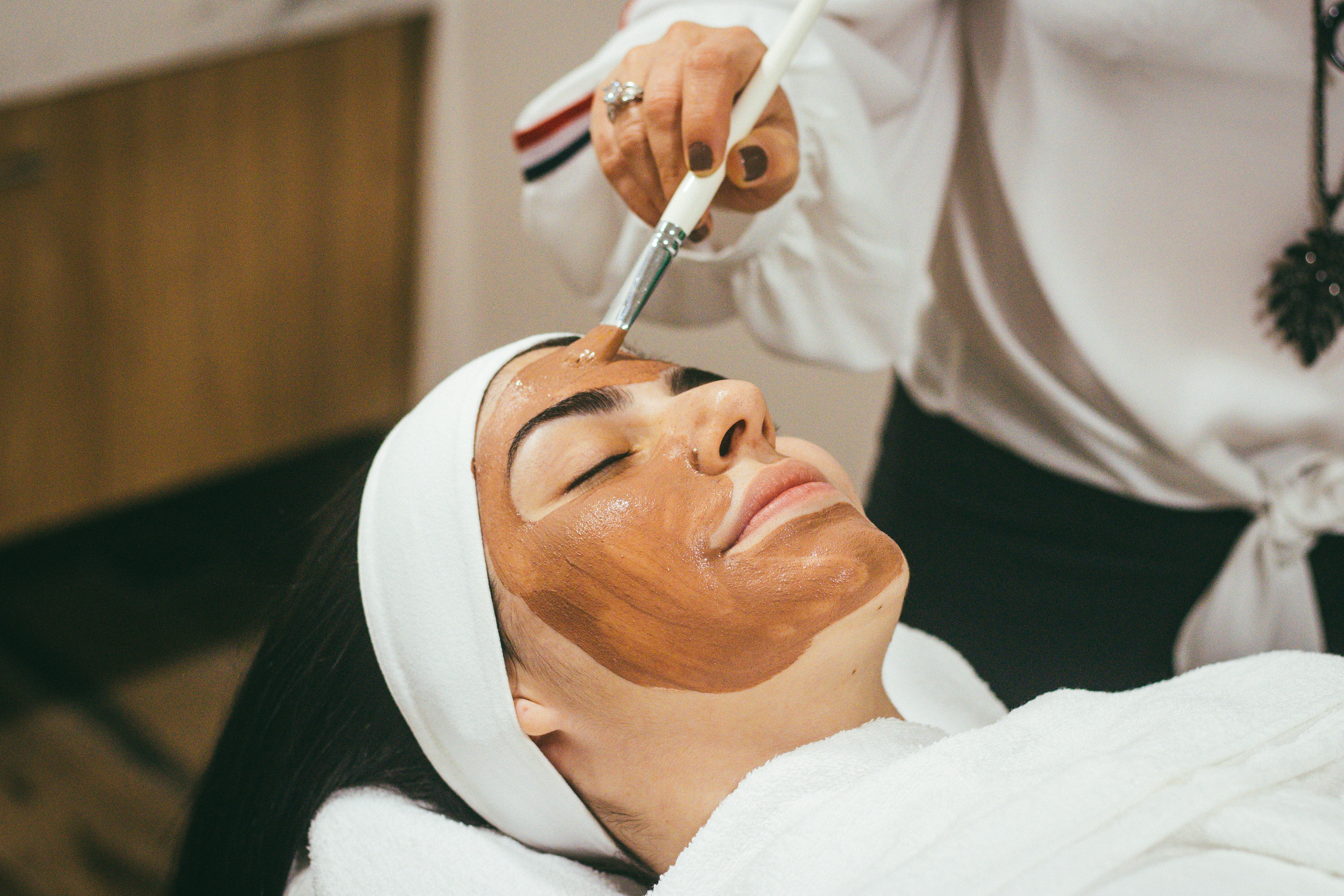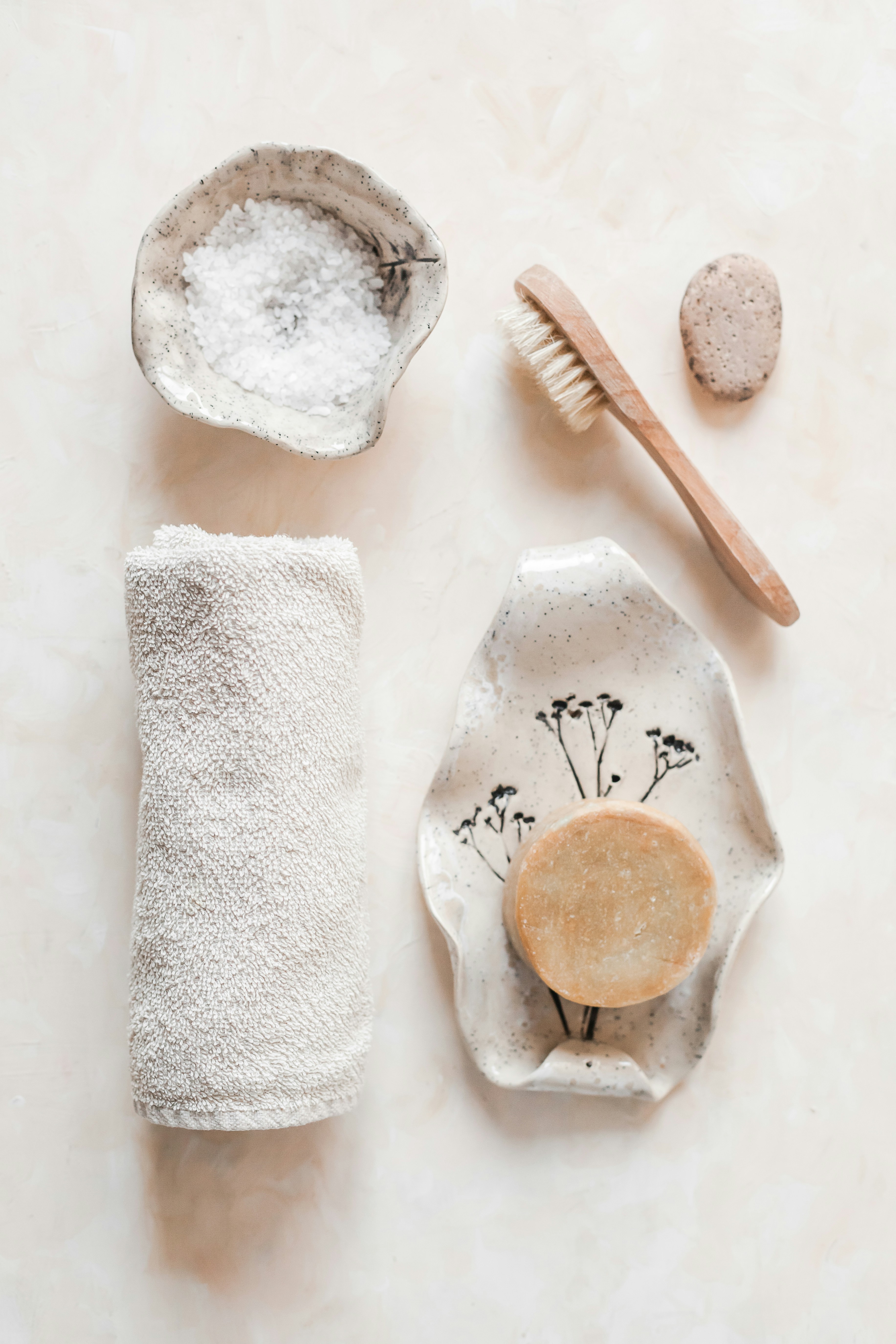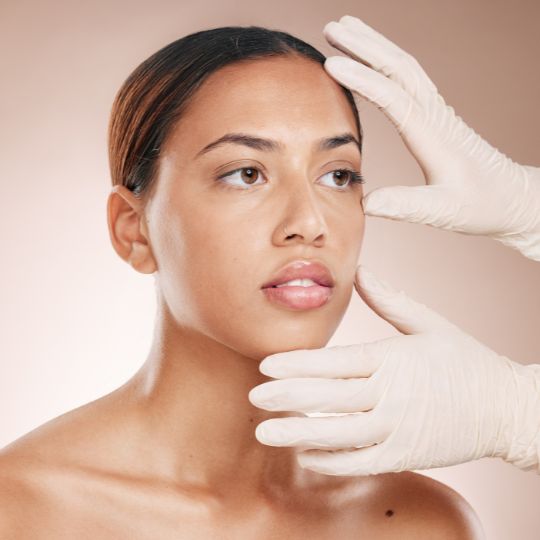Are you searching for simple yet effective ways to tighten and rejuvenate your skin? Look no further! In this article, we will guide you through various methods to achieve a youthful and radiant complexion. Whether you’re dealing with sagging skin or dullness, we’ve got you covered. With our expert tips and easy-to-follow techniques, you’ll soon be on your way to a tightened and glowing face that will keep heads turning! Say goodbye to your skincare woes and get ready to embrace a rejuvenated and radiant you!
Proper Cleansing
Identify your skin type
Before starting any skincare routine, it is crucial to identify your skin type. This knowledge will help you choose the right products and treatments that will work best for your skin. Common skin types include oily, dry, combination, and sensitive. Understanding your skin type will allow you to tailor your cleansing routine accordingly and achieve optimal results.
Choose a suitable cleanser
Once you have determined your skin type, it is essential to select a cleanser specifically formulated for your needs. For oily skin, opt for a gel or foam cleanser that can effectively remove excess oil and unclog pores without over-drying your skin. If you have dry skin, look for cream or milk cleansers that provide hydration while cleansing gently. Those with sensitive skin should choose a mild and fragrance-free cleanser to avoid irritations. For combination skin, consider using a cleanser that balances oiliness in the T-zone while hydrating the rest of your face.
Gently cleanse your face
When cleansing your face, remember to be gentle. Avoid harsh scrubbing motions or using hot water, as these can strip your skin of its natural oils and cause irritation. Instead, use lukewarm water and your fingertips or a soft washcloth to massage the cleanser onto your skin in circular motions. This will help remove dirt, oil, and impurities while promoting circulation. Rinse thoroughly and pat your face dry with a clean towel, being careful not to rub or tug your skin.
Exfoliation
Benefits of exfoliation
Exfoliation is an essential step in any skincare routine as it helps remove dead skin cells, unclog pores, and reveal a smoother, brighter complexion. Regular exfoliation can also improve the absorption of skincare products, allowing them to penetrate deeper into the skin for better results. By sloughing away the build-up of dead skin cells, exfoliation promotes cell turnover, leading to a more youthful and radiant appearance.
Choose an appropriate exfoliator
There are two main types of exfoliators: physical exfoliators and chemical exfoliators. Physical exfoliators contain small granules or particles that physically buff away dead skin cells. These can include scrubs, brushes, or exfoliating gloves. Chemical exfoliators, on the other hand, use ingredients such as alpha-hydroxy acids (AHAs) or beta-hydroxy acids (BHAs) to dissolve the bonds between skin cells, allowing them to be easily sloughed off. It is essential to choose an exfoliator that is suitable for your skin type and to follow the recommended usage guidelines.
Follow a regular exfoliation routine
To reap the benefits of exfoliation, it is important to establish a regular routine. However, the frequency of exfoliation may vary depending on your skin type. Those with oily or acne-prone skin may benefit from more frequent exfoliation, while those with sensitive or dry skin should exfoliate more gently and less often. Start by exfoliating once or twice a week and adjust as needed. Be mindful not to over-exfoliate, as this can lead to irritation and damage to your skin’s protective barrier.

Hydration
Importance of hydration
Hydration is crucial for maintaining healthy, glowing skin. When your skin is properly hydrated, it looks plump, smooth, and vibrant. Proper hydration helps to balance oil production, reduce the appearance of fine lines and wrinkles, and improve skin elasticity. Moreover, hydrated skin is better able to defend against environmental aggressors and maintain a healthy barrier function.
Drink an adequate amount of water
One of the easiest ways to hydrate your skin from the inside out is by drinking an adequate amount of water. Aim to drink at least eight glasses of water per day, or more if you engage in strenuous activities or live in a dry climate. Water helps flush out toxins, promotes circulation, and keeps your skin cells hydrated, resulting in a clearer and more radiant complexion. Remember, proper hydration is not only beneficial for your skin but also for your overall health.
Use a hydrating moisturizer
In addition to internal hydration, using a hydrating moisturizer is vital for maintaining optimal moisture levels in your skin. Look for moisturizers that contain ingredients such as hyaluronic acid, glycerin, or ceramides, as these help attract and retain moisture. Apply your moisturizer to clean, damp skin after cleansing and toning. Gently massage it into your face and neck using upward motions to ensure even distribution. Using a moisturizer both in the morning and at night will help keep your skin hydrated throughout the day.
Sunscreen Protection
Sun damage and its effects on the skin
Exposure to the sun’s harmful ultraviolet (UV) rays can cause significant damage to your skin, including sunburn, premature aging, and an increased risk of skin cancer. UV rays can penetrate through clouds and windows, so it is crucial to protect your skin daily, regardless of the weather or your activities. The effects of sun damage can accumulate over time, leading to dark spots, wrinkles, and a loss of skin elasticity.
Select a broad-spectrum sunscreen
To shield your skin from harmful UV rays, it is essential to choose a broad-spectrum sunscreen. Broad-spectrum sunscreens protect against both UVA and UVB rays. UVA rays can prematurely age your skin, while UVB rays can cause sunburn. Look for a sunscreen with an SPF (sun protection factor) of 30 or higher to ensure adequate protection. Apply sunscreen generously to all exposed areas, including your face, neck, and any other parts of your body not covered by clothing.
Apply sunscreen every day
Make wearing sunscreen a part of your daily routine, even on cloudy days or when you are spending most of your time indoors. Apply sunscreen at least 15 minutes before sun exposure to allow it to fully absorb into your skin. Reapply every two hours or more frequently if you are swimming, sweating, or have wiped your face with a towel. Remember to cover all exposed areas, including your ears, back of your neck, and the tops of your hands, as these areas are often neglected but prone to sun damage.

Healthy Diet
Consume foods rich in antioxidants
Your diet plays a significant role in the health and appearance of your skin. To promote skin tightening and a glowing complexion, focus on consuming foods rich in antioxidants. Antioxidants help protect your skin from free radicals, which are unstable molecules that can cause damage and accelerate aging. Incorporate berries, leafy greens, citrus fruits, and other colorful vegetables into your diet for a good dose of antioxidants. Additionally, green tea, dark chocolate, and nuts are also excellent sources of antioxidants that can benefit your skin.
Include essential fatty acids in your diet
Essential fatty acids, such as omega-3 and omega-6, are crucial for maintaining healthy skin. These healthy fats support the skin’s barrier function, help retain moisture, and promote elasticity. Include foods like fatty fish (salmon, mackerel), avocados, walnuts, and flaxseeds in your diet to boost your intake of essential fatty acids. If you are vegetarian or vegan, consider incorporating algae-based omega-3 supplements or flaxseed oil into your daily routine.
Avoid processed and sugary foods
While it is important to incorporate skin-healthy foods into your diet, it is equally important to avoid or minimize the consumption of processed and sugary foods. These foods can contribute to inflammation, breakouts, and premature aging. Opt for whole, unprocessed foods whenever possible and limit your intake of sugary snacks, refined carbohydrates, and sugary beverages. Instead, satisfy your sweet tooth with naturally sweet fruits or indulge in healthier dessert alternatives.
Facial Massage
Benefits of facial massage
Facial massage offers numerous benefits for your skin. It promotes circulation, increases the delivery of oxygen and nutrients to your skin cells, and stimulates the lymphatic system to eliminate toxins and reduce puffiness. Additionally, facial massage can help relax facial muscles, relieve tension, and improve muscle tone and elasticity. Regular facial massages can enhance your skin’s overall appearance, leaving it firm, radiant, and glowing.
Use a facial oil or moisturizer for massage
To facilitate smooth gliding and prevent friction during a facial massage, it is recommended to use a facial oil or moisturizer. These products provide slip and glide, allowing your hands to move easily across your skin without stretching or pulling. Choose a facial oil or a lightweight moisturizer that suits your skin type and massage it into your skin using gentle, upward motions. This not only enhances the massage experience but also provides an additional layer of hydration and nourishment for your skin.
Follow proper techniques
When performing a facial massage, it is essential to follow proper techniques to avoid any potential damage to your skin. Start by applying gentle pressure with your fingertips and palms, moving in circular motions. Pay attention to your facial contours, including your forehead, cheeks, temples, and jawline. Be mindful of the delicate skin around your eyes and lips and use light and careful motions in these areas. Take your time, relax, and enjoy the process, allowing yourself to fully unwind and benefit from the therapeutic effects of facial massage.

Face Masks
Different types of face masks
Face masks are an excellent addition to any skincare routine as they provide targeted treatments and address specific skin concerns. There are various types of face masks available, including clay masks, sheet masks, gel masks, and sleeping masks. Clay masks help draw out impurities and excess oil, while sheet masks provide deep hydration and nourishment. Gel masks are cooling and soothing, making them ideal for sensitive or irritated skin. Sleeping masks are applied before bedtime and left on overnight to provide intensive hydration and rejuvenation.
Choose a mask based on your skin concerns
To make the most of your face mask experience, select a mask that targets your specific skin concerns. If you have oily or acne-prone skin, opt for a clay mask to help unclog pores and control excess oil. If your skin is dry or dull, choose a hydrating or brightening mask to replenish moisture and revitalize your complexion. For sensitive or irritated skin, look for masks that contain soothing ingredients like aloe vera or chamomile. Remember to follow the instructions for each mask and apply it to clean, dry skin for the recommended duration.
Apply masks regularly
To maintain healthy and glowing skin, it is essential to incorporate face masks into your skincare routine regularly. Depending on your skin type and needs, aim to use a face mask one to three times a week. This consistency will allow you to reap the full benefits of the mask’s ingredients and treatments. Find a time that works best for you, whether it’s during your self-care routine, before a special occasion, or as a part of your weekly pampering session. Sit back, relax, and let the mask work its magic while you enjoy some well-deserved me-time.
Beauty Sleep
Effects of sleep on skin health
Getting enough quality sleep is essential for overall health and well-being, including the health of your skin. During sleep, your body repairs and rejuvenates itself, including your skin cells. Lack of sleep can lead to various skin issues, such as dullness, dryness, breakouts, and an increase in fine lines and wrinkles. On the other hand, a good night’s sleep can result in a well-rested complexion, reduced puffiness, and a natural glow.
Establish a regular sleep schedule
To optimize your sleep for skin health, establish a regular sleep schedule. Aim to go to bed and wake up at the same time every day, even on weekends. This routine helps regulate your body’s internal clock, allowing for better sleep quality and a more refreshed complexion. Create a relaxing bedtime routine by engaging in calming activities such as reading a book, taking a warm bath, or practicing mindfulness techniques. Limit exposure to screens and bright lights in the evening, as they can disrupt melatonin production and make it harder to fall asleep.
Create a calming bedtime routine
Incorporate skincare rituals into your calming bedtime routine to further enhance your skin’s rejuvenation during sleep. Start by thoroughly cleansing your face to remove all traces of makeup, dirt, and impurities accumulated throughout the day. Follow with a gentle toner to balance the pH of your skin and prepare it for the next steps. Apply hydrating serums or creams to nourish your skin and address specific concerns, such as fine lines or uneven skin tone. Finish with a luxurious night cream or sleeping mask to provide intensive hydration and repair while you sleep.
Stress Management
Impact of stress on skin
Stress can take a toll on your overall health, including your skin. When you are under stress, your body releases hormones like cortisol, which can increase inflammation and oil production, leading to breakouts, redness, and other skin issues. Stress can also worsen existing skin conditions like eczema or psoriasis and accelerate the aging process. Therefore, managing stress is vital for maintaining a healthy complexion.
Practice stress-reducing activities
Incorporating stress-reducing activities into your daily life can help promote calm and relaxation, benefiting both your mind and your skin. Find activities that you enjoy and that help you unwind. This could include practicing yoga or meditation, going for walks in nature, listening to soothing music, or engaging in hobbies that bring you joy. Taking time for yourself and prioritizing self-care is essential for managing stress and supporting your well-being.
Seek professional help if needed
If stress becomes overwhelming and begins to significantly impact your daily life and skin health, it is important to seek professional help. A healthcare provider or a mental health professional can offer guidance, support, and strategies to manage stress effectively. They may recommend therapy, stress management techniques, or other treatments to help you navigate and alleviate stress. Remember that seeking help is a sign of strength and taking care of your mental and emotional well-being is just as important as caring for your skin.
Limiting Makeup Usage
Allow your skin to breathe
While makeup can enhance your beauty and boost your confidence, it is essential to allow your skin to breathe by limiting its usage. Wearing makeup for extended periods or every day can lead to clogged pores, breakouts, and a dull complexion. Give your skin regular breaks by going makeup-free whenever possible, especially on days when you don’t have any special events or outings. This will allow your skin to regenerate and maintain its natural balance.
Choose makeup products suitable for your skin type
When you do wear makeup, make sure to choose products that are suitable for your skin type. Opt for non-comedogenic or oil-free formulas if you have oily or acne-prone skin. If you have dry skin, look for products that provide hydration and luminosity. It is also important to remove your makeup thoroughly at the end of the day to prevent buildup and potential skin issues. Use a gentle cleanser or makeup remover to dissolve and wipe away your makeup, followed by your regular cleansing routine.
Cleanse your face thoroughly before sleeping
Cleansing your face thoroughly before sleeping is especially important if you wear makeup. Leaving makeup on overnight can lead to clogged pores, breakouts, and a dull complexion. Start by using a gentle makeup remover or micellar water to dissolve and remove the majority of your makeup. Follow with a cleanser that suits your skin type to eliminate any remaining residue and impurities. Finish with your regular skincare routine, including toning, moisturizing, and applying any targeted treatments. This will ensure that your skin is clean and ready to rejuvenate during the night.
In conclusion, achieving and maintaining tight, glowing skin requires a comprehensive skincare routine that includes proper cleansing, exfoliation, hydration, sunscreen protection, a healthy diet, facial massage, regular face masks, quality sleep, stress management, and mindful makeup usage. By following these steps, customized to your skin type and concerns, you can transform your skin and enjoy the radiant complexion you deserve. Remember, consistency is key, and with dedication and patience, you will undoubtedly see improvements in your skin’s overall health and appearance.

